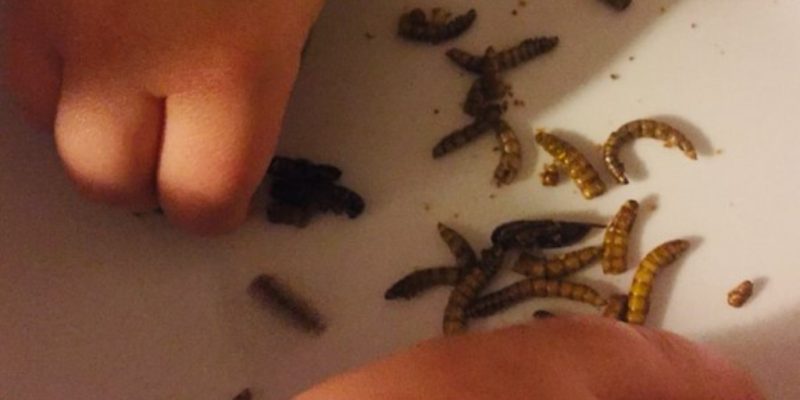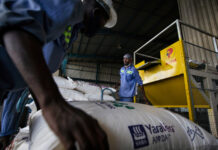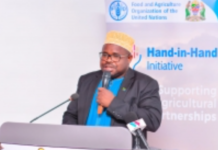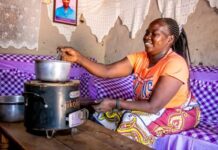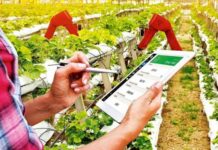Against a grand vision of mainstreaming edible insects as a way of achieving food security and economic growth, Rwanda has marked two major milestones: the launch of national standards to guide the emergence of the edible insects sector; and the establishment of the country’s first commercial insect-based animal feed plant.
These landmarks have been achieved through a process facilitated by the Improving Market Systems in Rwanda for Agriculture (IMSAR) project, an initiative funded by UK Aid through the Foreign Commonwealth and Development Office (FCDO); in partnership with the Rwanda Agricultural Board (RAB), and the Rwanda Standards Board (RSB).
The International Centre of Insect physiology and Ecology (icipe), a globally renowned leader in insect for food and feed and other uses, provided the scientific and technical guidance.
Rwanda joins a rising movement in Eastern Africa that has been spurred on by a world-wide awakening, as well as icipe’s championship, on the reality of insects as a transformative force in reshaping our food system into a more sustainable and vibrant circular economy. Globally, insects are increasingly being valued as a green, more affordable and more nutritious source of food for people; as alternative protein components for animal feed; and as a basis for the transformation of economies and livelihoods. Moreover, insects create the biological foundation for all land-based ecosystems, for instance as pollinators and by recycling organic waste into nutrient rich fertilisers. They are also origins of various high value products such as oils, chitin and chitosan, which have diverse uses in the energy, industrial, pharmaceutical, food and crop protection sectors.
“The use of insects as a source of protein in animal feed has been tested and is now being used in several countries. It is therefore great to see such innovations coming to Rwanda and we are happy to have helped pioneer companies to gain the technical know-how and invest in production facilities,” says Ms Anna Wilson, Development Director, FCDO.
icipe’s leadership
“Over the past decade, icipe has advanced research and development activities on insects for food, feed and other uses,” says icipe Director General, Dr Segenet Kelemu. “Beyond fostering global knowledge, an important outcome of our endeavours is the evident, transformative impact on national and regional development agenda and aspirations.”
icipe has comprehensively documented edible insects in Africa and generated scientific evidence on their nutritional and socio-economic value; their superiority in terms of water consumption, space requirements and greenhouse gas emissions; and impact on livestock productivity and health. The Centre has also developed protocols to improve harvesting and mass rearing of insects and to produce novel, safe and affordable insect-based products like biofortified foods, feed proteins, organic fertiliser and pest control products.
These activities have been supported by massive capacity and awareness building, as well as the development of policies and national standards in East Africa. As a result, in less than one decade, insect farming has increased dramatically in the region. Over 1000 large scale and micro-entreprises have been established, with the production capacity of the top nine insect farms estimated at approximately 9780 metric tonnes of dried insect protein annually. Studies show that in poultry and pigs, insect-based feeds contribute to rapid growth; in chicken, more eggs of better quality; and in fish, improved quality weight and crude protein. Insect-composted organic fertiliser promotes crop yields by up to 40 percent. Between 5-50 percent adoption of insect-based feed by the entire poultry sector in Kenya alone would free-up enough fish and maize to feed 0.47 – 4.8 million people, create 25,000-252,000 jobs per year, recycle 2 – 18 million tonnes of organic waste into 1.8 – 18.4 thousand tonnes of organic fertilisers and improve the country’s economy by USD 69-687 million.
Rwanda’s vision
The rise of insect-based enterprises in Rwanda is timely. The country’s nutrition plan includes enhancing the protein intake of the population by boosting dairy and poultry production. Also, Rwanda has the ambition of raising its regional competitiveness in the livestock sector. But challenges abound.
“As a landlocked country, we must import protein raw materials for animal feed, like soybeans. This is often at high and volatile prices, with adverse effects on the industry and livestock sector in general. For example, many animal feed manufacturers in the country are operating at half their capacity,” states Dr Solange Uwituze, Deputy Director General, RAB.
This scenario escalates the cost of animal feeds in Rwanda. Indeed, between 2019 and 2022, the prices rose by over 130 percent, from Rwf450 (USD 0.44) per kilogramme to Rwf 1,050 (USD 1.01) per kilogramme in 2022. As a result, smallholder farmers, who account for over 80 percent of livestock producers, have resulted to farm-made feed of low nutritional value and poor conversion rates leading to low livestock productivity.
The newly launched insect-farming commercial plant will be housed by Safe for Health Ltd, a subsidiary of Agri-Business Solution (Abusol) Ltd, a major chicken breeding and animal feed factory in Rwanda. Initially, the facility will focus on the rearing of black soldier fly, an insect that has been chosen for its proven versatility. icipe research has confirmed the value of black soldier fly larvae or the proteins derived from them, as components in feeds for poultry, pigs and fish. The Centre has also demonstrated the efficiency of black soldier fly larvae in recycling organic waste into protein and nutrient-rich bio-fertilisers. Further, icipe has generated knowledge on the most optimal black soldier fly rearing protocols and infrastructure.
“In partnership with icipe, we have supported Safe for Health Ltd to set up an infrastructure for black soldier fly rearing, organic waste substrate processing, trials and validation of animals fed insect-based feeds,” says Giulia Salmaso, Team Leader, IMSAR. “We have also built the staff’s capacity and strengthened various value chain aspects including arrangements with agro-industries for supply of organic waste.”
“We predict that we will scale-up operations in the first three years of operation, to produce at least 5000 tonnes of dry insects for poultry feed, while processing at about 100,000 metric tonnes of waste annually. Our aim is to reach a production capacity of 25,000 metric tonnes of dry insect by processing of over 500, 000 metric tonnes of waste annually,” notes Jean Baptiste Musabyimana, CEO and Founder, Abisol Ltd.
With growing interest in insect-based enterprises, especially among the youth and women, the plant will serve as a commercial model and a training hub to enable others in Rwanda, to seize the opportunities to build skills in insect-based enterprises.
“Within this context, having a regulatory framework is vital. The national standards will help to regulate production and usage of the insect-based products,” says Jerome Ndahimana, Director of Food and Agriculture, Chemistry and Environment Standards Unit, RSB.
The Rwanda national standards for the edible insects sector include: a code of practice for production and handling of insects for food and feed; specifications for dried insect products for animal feeds and edible insect products and those for whole insect and insect flour.



